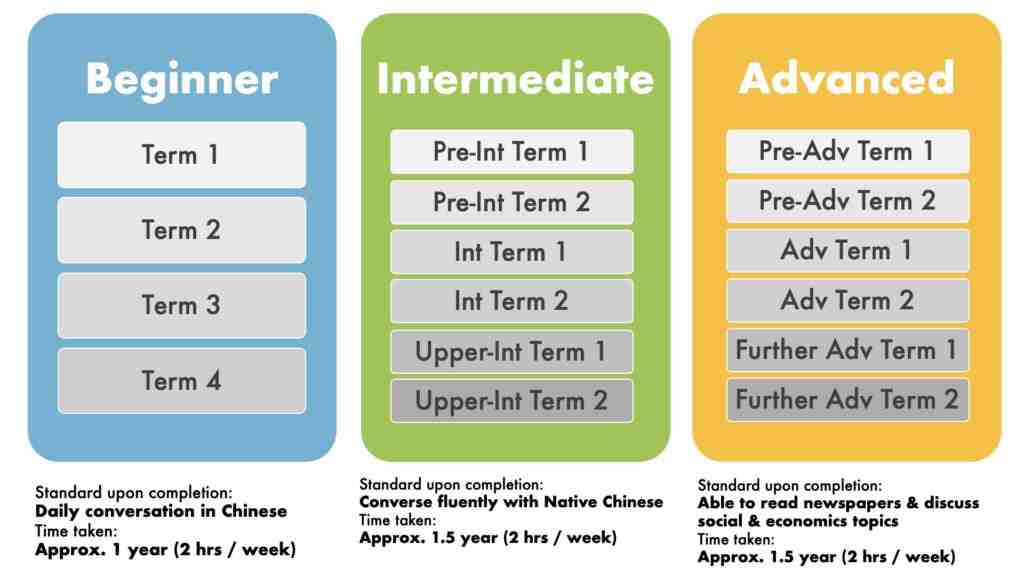What Should Lawyers Learn in Business Mandarin?
What Should Lawyers Learn in Business Mandarin?

The Importance of Business Mandarin for Legal Professionals

Learning business Mandarin is a valuable asset in many fields, including the legal industry. The ability to understand business Mandarin as a legal professional will not only help workers in ensuring a smoother conversation with different parties, but also help achieve other benefits such as the following.
- Expanding career opportunities – As one of the valuable assets that can be acquired through constant learning and practice, the ability to understand business Mandarin can help lawyers to advance their career opportunities. With the ability to communicate using proper business Mandarin, legal professionals can be connected to a wider market, which may allow them to work with Chinese business partners.
- Relation with international – Legal professionals often deal with laws, which is not limited to regional laws. In certain instances, lawyers and other similar professions are required to understand international law as well. While a lot of rules and documents are available in English, learning business Mandarin can assist legal professionals to obtain extra resources for their career.
- Understanding context fully – Understanding context is an essential step in working as a professional in legal fields. Lawyers and other legal professionals often have to deal with many documents and laws that need to be analyzed with extra care. By learning business Mandarin, lawyers can understand legal terms to help absorb information better and avoid misunderstanding in such a crucial situation.
A Structured Way to Learn Business Mandarin for Legal Professionals

Learning business Mandarin to help your work as a legal professional is utterly different from learning Mandarin for conversation. Although both learnings will cover the basics to build a stronger foundation in the future, education for business purposes will usually include industry-specific business Mandarin. Learning business Mandarin for legal professionals will usually be carried out with a structured way to help enhance information absorption. As a reference, here’s a structured way to learn business Mandarin as a legal professional.
Decide Your Goal
Before starting your business Mandarin learning journey to assist your job as a legal professional, an essential step to take is establishing your goal. Early settlement on your goal will provide a better focus in the future, where you can receive the perfect curriculum to advance your ability in a shorter period of time. While learning business Mandarin as a whole is undeniably important, some lawyers will need to upscale certain skills, such as speaking, reading, or writing. Emphasizing on these skills will allow legal professionals to achieve targeted results in no time.
Build a Strong Foundation
Similar to learning for conversational purposes, legal professionals with little to no experience in business Mandarin are highly advised to begin with learning the basics of the language. This part will usually consist of learning pronunciation, recognizing Chinese characters, and acknowledging sentence structures.
Research the Differences
While learning business Mandarin to help your career as a legal professional, one has to realize the difference between the rule of law in their country and how it differs with other countries. Learning these differences are highly recommended to help alter your focus and get a better grasp on how the Chinese legal system works. Without researching further on the legal system, professionals may have a hard time focusing on learning business Mandarin due to the unique characteristics of the Chinese legal system.
Learn Key Terms and Concepts
After having a proper goal that you want to achieve while learning business Mandarin as a professional, it is important to start learning its key terms as these key terms are not usually explored deeper on conversational Chinese level.
Immersion
After having a solid foundation of business Mandarin for legal professionals, you can advance your understanding by immersing yourself in legal documents or articles. Try finding articles related to legal matters in business Mandarin or reading documents published in Mandarin to familiarize yourself further. If possible, you can also engage actively with lawyers or other legal professionals that use business Mandarin actively.
Contract Review and Negotiation: Where to Start

Mandarin for corporate lawyers is increasingly important right now, especially as negotiators and legal advisors engage more with Chinese-speaking clients.Skilled negotiators are usually expected to be able to navigate through contracts and bring out the best possible outcome for every involved party. To achieve this goal, legal professionals who work as negotiators are not only required to be able to perceive each detail while reviewing contracts, but also to communicate smoothly and effectively. While trying to expand your scope of practice by learning business Mandarin, there are a few topics that you can start learning which include:
Contract Structure
Before being able to review a contract, an important step that you need to follow is familiarize yourself with contract structure that is often used by Mandarin speaking parties. Understanding this structure is essential to help you navigate better through different clauses and provide you with a better conclusion. A standard contract structure will usually include contract title, involved parties, date/duration, and clauses.
Expressing Agreement and Disagreement
While participating in negotiations, legal professionals are expected to help assess how prospectful agreements are. To help achieve a better result in negotiating, legal professionals should understand how to express agreement and disagreement during discussions.
Business Terms
Legal professionals are often assigned to review business documents and contracts. If you’re working as a negotiator for business related partners, it is highly recommended to have a basic grasp of these terms in business Chinese. Understanding these terms will not only help provide a better understanding of the situation, but also enable us to erase the language barriers between one another.
Learn more about how you can start learning business Mandarin phrases to help you begin your journey by visiting this article.
Speaking Politely in Business Mandarin as a Legal Professional

Maintaining a respective tone while speaking as a legal professional is undeniably important to exhibit professionalism and build credibility while interacting with others. Although it can be counted as a small action, acting and speaking politely in business Mandarin as a legal professional is the key to a successful negotiation with other parties. This aspect is getting increasingly essential especially within Chinese business partners, where action and words can determine professionalism. Here’s a quick guide on how to speak politely in business Mandarin as a legal professional.
Maintaining the Tone
Showing respects toward other parties should start from the very beginning. If you’re attending a discussion as a legal professional, make sure to greet and address everyone formally, emphasizing on the hierarchical position of every involved party. Check this article to learn more about how to greet and address people properly in Business Mandarin.
Be indirect
Directness can be considered rude while talking to Mandarin speaking parties. This point can be even more fatal especially if you’re disagreeing with someone. Instead of directly conveying your thoughts with straightforward explanations, a legal professional that interacts with Chinese parties should be able to subtly hint on a suggestion while still showing appreciation along the way.
Stay calm
Disagreement is bound to happen while you’re trying to negotiate with other parties. As a legal professional, competence can be measured by how you can respond to this situation professionally. Instead of lashing out, a legal professional should be able to keep their emotions under control. This can be reflected in having a good posture and avoiding using exaggerated gestures when disapproving with something.







